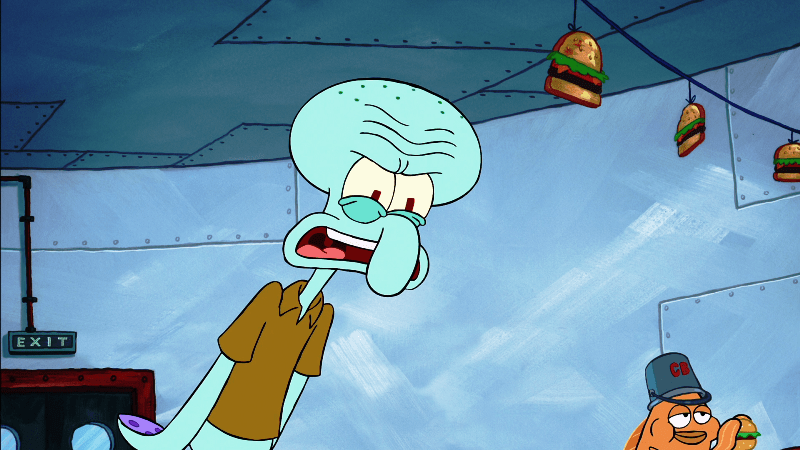Underneath the tentacles, Squidward represents most of us

Squidward Tentacles is a fictional character from Nickelodeon’s two-decade running American animated series SpongeBob SquarePants. From watching the show since childhood, we have always known him as a typical grumpy, cynical, and mean character. We hated him for oftentimes getting in the way of our favorite Spongebob.
However, as we unknowingly kept track of the show, we did not only let the characters grow on us in the past years. We instead, understood them more, and even relate ourselves to some of them.
And Squidward is no exception!
We viewed him as a villain, but we were all too young to understand where was he coming from. Now as transitioning adults, Gen Z sees Squidward as an exact representation of all of us.
So from the depths of Bikini Bottom, up to the surface of reality, let’s take a look at how we see ourselves through Squidward:
Squidward being transparent

Our most reason for disliking him then is because he’s the complete opposite of the hopeful, bubbly, and always happy Spongebob. For being a killjoy to our main character’s adventures, we are used to antagonizing Squidward.
Little did we know, his being true to himself and his emotions is just another type of charm. We see through his intentions and more of his genuine aspects, no hidden agenda, and filters. In other words, he is just us, having no interest to deal with others’ drama.
How can we not love him?
Irate to any slight conveniences

Everyone tends to lose their patience as time goes by. There really are just things we no longer want to invest our understanding— and Squidward is like that! It is not that he despises the chance to have joy, but he’s too fed up to cater to any matter outside his plate.
Although it’s a truth that he is sometimes egotistic or selfish, there is a bigger picture. What we oversaw is how Squidward only wants to do everything at his own pace and peace.
Admitting to your limitations and being clear about boundaries. It’s a positive trait.
Squidward, an epitome of ‘surviving, not living‘

A regular employee of an established fast food restaurant, an independent adult, owns a property, and even lives with his pet. From these descriptions, we might judge Squidward for being ungrateful and discontented. But we seem to have missed that being unhappy is his core character.
Meaning, his life possessions are not the equivalent of his fulfillment. He spends his life in a disappointing cycle of doing something you need to, but don’t love. Thus, this justification of him speaks a lot about our harsh reality.
Being frustrated over his failed dreams

In most of the scenes in the show, Squidward has always shown passion in playing the clarinet. Pursuing art is his greatest liking, but it is where he, unfortunately, failed at.
For young adults, this could be the most relatable buildup of Squidward’s character. The feeling of getting lost, feeling empty and beating yourself up for not being enough.
The root of Squidward’s unappreciative and selfish behavior lies in his past ordeal as a frustrated artist. And at some point in our lives, we are all have been haunted by such miseries.
To which why should we know better that it is humane.
Squidward: Longing for validation

And finally, something to encompass all the aforementioned things above.
Squidward is yet just another misunderstood character we mistake as a villain. He is not a direct antagonist to Spongebob, it just happens that they both stand from the opposite extremes.
Looking back, we could be the real enemy by holding to our false conceptions. It is long overdue, but now is the right time to straighten our twisted beliefs.
Having bad experiences doesn’t mean a leeway to tolerate ill actions. But sometimes, all that it takes is to be more understanding. Beneath the tentacles of a grumpy, cynical and mean Squidward, is a character unrewarded, deprived of love, and so yearns for validation.
Renzo is an introvert who prefers to do things at his own pace. Unlike most writers, he reads lazily. Watching Korean dramas at night is his constant source of comfort. Although oftentimes commended for being outspoken, he speaks better through writing than with his words.






